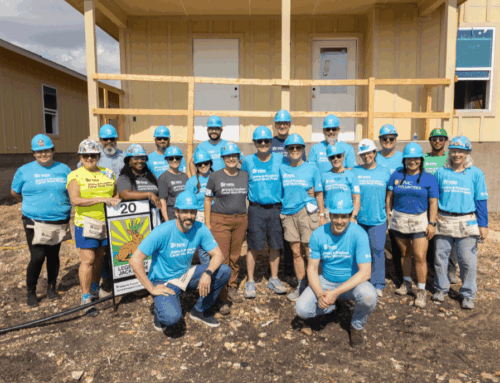Excerpt taken from the weekly NADRA Industry Brief
December 1, 2010 | The week of October 24th, I attended the International Code Council (ICC) Conference on NADRA’s behalf.
Special thanks to board member Mick Feduniec (Deckscapes, Inc.) and his family for putting me up (and putting up with me) at their beautiful home in Charlotte for the duration of my stay.
While at the Conference, I participated in a meeting of the ICC Evaluation Service Advisory Committee (ESAC). ESAC is charged with improving service to manufacturers seeking Evaluation Service Reports (ESR). Please see http://www.icc-es.org/Help/esac.shtml for a more in-depth discussion of the purpose of ESAC.
The committee is open to participation from members of industry and manufacturers. What struck me as most important was an earnest effort on the part of all participants to move toward resolution and improvement. I was able to meet several vice presidents of ICC-ES as well as manufacturer and industry representatives.
A highlight of the meeting is the effort to create an appeal system for addressing ICC-ES committee decisions that the applicant seeking an ESR disagrees with. We contributed to this discussion by providing a description of the appeal system that is used today in the courts. While ICC-ES currently has an internal procedure for working through complaints, they are moving toward the possibility of a separate, formal, appeal process for ESR applicants. For example, in the case where an applicant is denied an ESR, and feels that the Acceptance Criteria (AC) was improperly applied to the data supplied, they could appeal the committee decision. If the Applicant’s arguments are found to have merit, then the appeal panel will refer it back to the ES committee to re-apply the data to the AC as directed by the appeal panel.
The work of the ESAC has resulted in some beneficial changes for ESR applicants. One of these is working toward the goals of more efficient hearings, and of speeding up the process for gaining an ESR, the following is now in place: the period of time prior to an ES hearing has been lengthened to provide staff with more time to prepare; ES is encouraging independent groups to work together before a hearing, ES is working with the applicant prior to the hearing to vet out questions. They’ve also designated staff with specific knowledge to work with applicants.
Next, I attended the Feedback Session on Code Development, a session put on by the ICC Code Development Review Ad Hoc Committee (CDRAC), designed to hear ideas regarding greater participation and strengthening rules related to code hearings. The CDRAC was appointed in 2010 to review all aspects of the code development process. Some of the material considered by this committee comes from comments solicited from ICC membership on improvement to the system.
NADRA previously submitted a comment relating to quorum requirements for voting at hearings. Upon review, CDRAC recommended that the ICC should focus on increasing participation at the hearing, rather than establishing a formal quorum requirement. A suggested goal, but not an exact requirement, is that there be at least 100 people present at a vote.
CDRAC is examining every aspect of the code development process including the length of cycle, length of hearing, ethics and sponsorships, single issue voting, the possibility of remote electronic voting, balanced committees, and more. They will have their work cut out for them in the years ahead.
We were approved for a table at the annual Crackerbarrel Luncheon; which is a box lunch affair where participants choose tables hosting topics of interest. There are three timed sessions during this luncheon. Mick Feduniec and I hosted a table directed to deck construction. (Beware any NADRA member I visit – you will likely get volunteered for something!). Interest in decks was high. A quick glance around the room showed our table to be possibly the most well attended table out of more than 40. During each of the three 20 minute sessions, there were not enough seats for our visitors. We were able to communicate with many building officials to talk about NADRA’s purpose, and the benefit of using professional NADRA builders, as well as, review major changes in deck code from the 2006 to 2009 IRC. Special thanks to Mark Guthrie of Fastenmaster who did a great job providing a technical perspective to these changes. We also had the ICC/NADRA co-branded book by Glenn Mathewson, “Deck Construction based on the 2009 International Residential Code” on hand for review, and used the inspection checklist at the back of the book as a handout.
NADRA is making headway into several areas that affect the building code and regulations that affect all of our members; from the professional deck builders who work with building code everyday in the field, up through the supplier chain to the manufacturers, and even consumers. Membership in NADRA helps us continue to work to better the industry as a whole and we appreciate each and every one of you for the sacrifice you make in this difficult economy.
Article by Diana Hanson – Chairman – NADRA Codes & Standards Committee
For more great articles and information, check out the weekly NADRA Industry Brief here!


